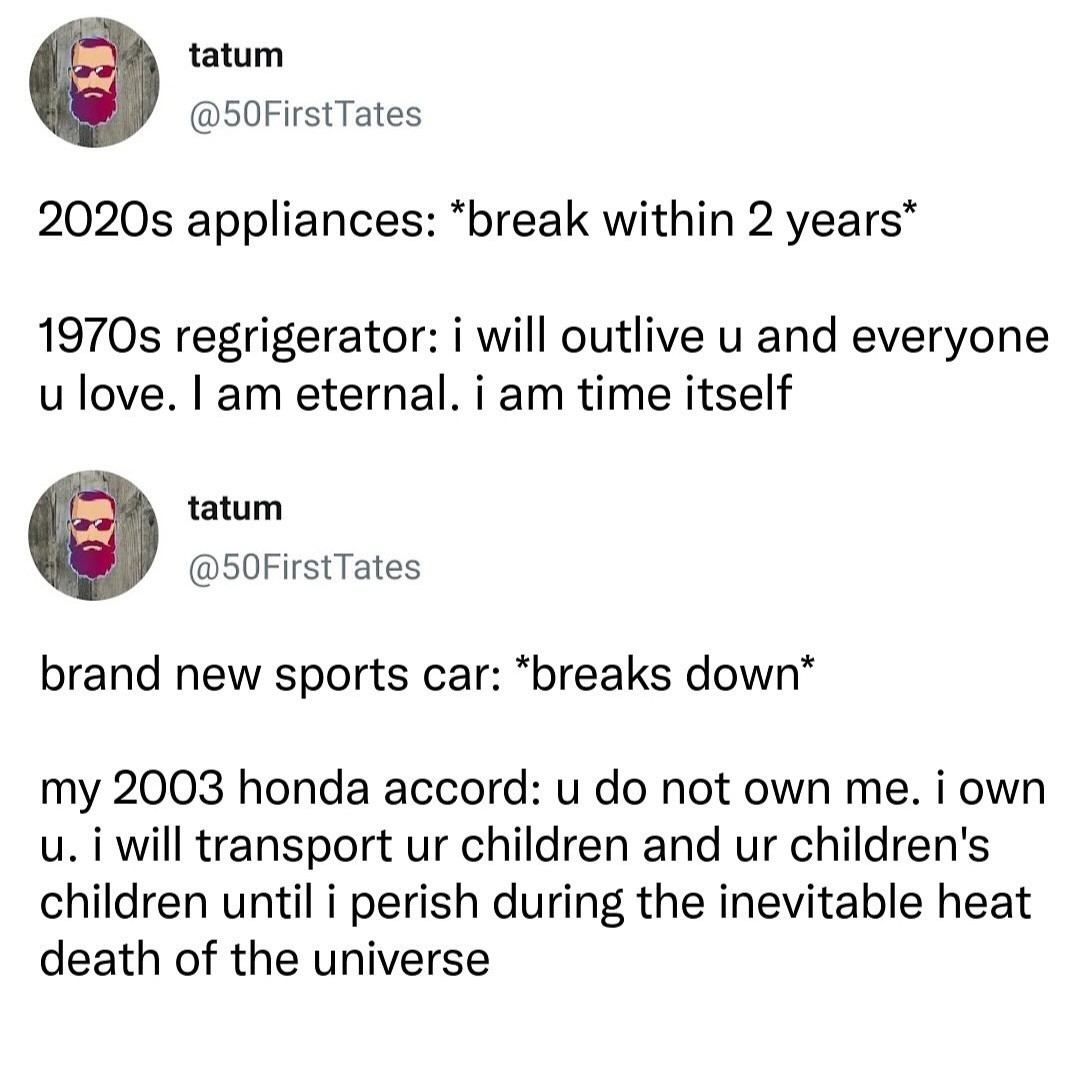this post was submitted on 01 Jul 2025
376 points (95.0% liked)
Cars - For Car Enthusiasts
4619 readers
11 users here now
About Community
c/Cars is the largest automotive enthusiast community on Lemmy and the fediverse. We're your central hub for vehicle-related discussion, industry news, reviews, projects, DIY guides, advice, stories, and more.
Rules
- Stay respectful to the community, hold civil discussions, even when others hold opinions that may differ from yours.
- This is not an NSFW community, and any such content will not be tolerated.
- Policy, not politics! Policy discussions revolve around the concept; political discussions revolve around the individual, party, association, etc. We only allow POLICY discussions and political discussions should go to c/politics.
- Must be related to cars, anything that does not have connection to cars will be considered spam/irrelevant and is subject to removal.
founded 2 years ago
MODERATORS
you are viewing a single comment's thread
view the rest of the comments
view the rest of the comments

It's not only that. There was a shift in the 70s because plastic became easier to industrially use, and it replaced more sturdy materials like metal. And after that came the electronicization of production, now electronic is less durable then mechanic. The neoliberal revolution made the salaries grow slower than before. Add to that planned obsolescence… all that opened the way for cheaper and less reliable production. Every decade since produced less and less durable things… There's a reaction now, but as the salaries are still low, it's a hard fight.
A rule I follow for kitchen tools is if I can find a manual, metal version, the better off I am. I use a pour over coffee maker and French press. Electronics just don't have the lifespan for me to waste money on them.
Same, some things I just do by hand because it's not so much more work, or leads to a better end result. Moka pot, big knife, iron skillet, some tools are so amazing and low tech. I can't refrigerate by hand though. We got a monster of a big fridge for the pantry, not hooked up to water, just a cavernous fridge/freezer thing and I LOVE it - it's like the TARDIS, will look full but if I shove things at I can add two loaves of bread dough, a cabbage, dozen eggs, so far it's never run out of space even around Thanksgiving with two turkeys in there. I am hoping that because there are fewer moving parts it will last.
And my Honda? I want it to live forever. 6 speed Accord Sport, stealth fun car in a mom car costume.
I agree for most things, they were just built to last a lot longer because product quality was a priority. These days, a company doesn't want you to buy once, they want to sell you a product that lasts just long enough you'll buy the same brand after it breaks. I'm a tradesmen and I can attest, the older a tool is, usually the higher quality it is. Same goes for lots of equipment. I once saw a sears model pressure tank from 1972 still in working condition when newer tanks last 5-10 years and the average before that was 15-20. That specific case might be survivorship bias, but every retiree i talk to will claim sears had some high quality stuff when they were yoinger.
Back then, not everyone had a washing machine, a frige, a stove, etc. The untapped market was those without those appliances. The focus was on reducing price while keepijg quality. Later, when most people had a fridge and the sales went down, the execs got the idea to add a shiny new shelf, a built-in freezer, a window, an ice machine, etc. Then they thought up of stuff like energy efficiency, durability, etc for marketing and planned obsolesence for maintaining their bottom line.
Nowadays, I wouldn't be surprised that more money is spent on researching novel ways of planned obsolesence (while avoiding laws against that in places where it exists), than just using "tried and true" methods would.
Yes, Craftsman was top of line, across the whole product line. When I worked at Lowes, Craftsman was the shittiest option in the garden center.